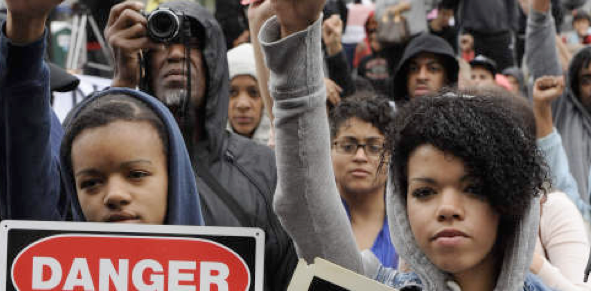CommentsGUEST WORDS-Sitting in my psychology class at the University of California Berkeley, I felt my hands clam up and my body tense as my professor initiated a conversation about the White Student Unions that have recently popped up on Facebook over the past few months.
Many of these WSUs are in fact fictitious groups designed to troll human rights campaigns, most notably, Black Lives Matter. Still, my professor felt that a conversation about what a White Student Union could mean in the context of race and academia would be helpful for our class.
As one of the few African-American students in the room, I felt a weight that many People of Color can relate to. It is a heaviness comprised of both dread and a deep understanding that within these types of discussion, students of color have to explain and validate our lived experiences to classmates with whom we feel a deep cultural dissonance.
It is important to note that the class in which I sat was quite literally about how racism is scientifically proven to have profound negative psychological and physiological effects on marginalized groups. And yet, with this knowledge readily accessible to them, White students in my class ceaselessly supplied reason after reason for why they felt unsafe on the UC Berkeley campus.
This lack of safety, in turn, was the reason White students in my class said they needed a space wherein they could organize. Inexplicably, my professor, a pioneer of race-based psychological research, propelled a discussion that sympathized with the needs of White students, while foregoing his responsibility to acknowledge that he had created an unsafe space for students of color.
If we look at the historical context of why African-Americans need to organize, of why Black students need a safe space, the evidence is endless.
Having heard enough, I stood up to address the 300-student lecture, "Whiteness organizes for the benefits of Whiteness," I said. I then named the FHA, the KKK, even amusement park franchises such as Disneyland and Knotts Berry Farm as examples of systems that were/are predicated upon maintaining and protecting the normalization of White-centered organizing and representation.
"If we look at the historical context of why African-Americans need to organize, of why Black students need a safe space, the evidence is endless. From redlining, to police brutality, to the Tuskegee airman, injustice against Black bodies is endless. Within a classroom of higher education you all fail to see the truth that has been set before you in countless lectures by our professor, and for that, I am deeply saddened."
I then walked out of my lecture, with 300 sets of eyes on me to the sound of my heartbeat pounding through my chest, and just slightly excited because the Scandal season finale was coming on that day.
As a student who tirelessly and rightfully earned her way into UC Berkeley, I refuse to allow classrooms to feel unsafe for me or any other students of color. What I truly love about this moment in my life was my professor's response. He contacted me after class, and he and I were able to go get coffee after the lecture. I appreciate how he was completely open to a discussion as to why the trajectory of that conversation was inappropriate, inadvertently oppressive, and incredibly unsafe for all people of color in the room.
I am humbled that I was able to discuss what I felt was a moment of injustice and to divulge those feelings in a healthy and productive manner. Many students of color who experience micro-aggressions in the classroom generally do not have such opportunities. I was also contacted by myriad of other students after the lecture who found my statement affirming and encouraging.
That moment in time has lead me into many fulfilling projects such as creating and facilitating race-based social justice programming for undergraduates. I created this programming in order to help students and professors alike effectively enter into conversations about social justice that are both affirming to people of color and open to teaching dominant group members how to develop in their knowledge of racial marginalization.
I am blessed that this negative moment in my life was able to become a place of empowerment for me. I am honored that I was able to voice my discontent and challenge the injustice in the room.
I write this to all students of color who may feel disheartened in their classrooms. You are not alone. I stand with you on this journey to claim your humanity and the validity of your experiences in places of learning that may devalue your worth.
(Ciarra Jones is a senior at UC Berkeley, a McNair Scholar, and an Honors Thesis Candidate. This piece originally appeared in the Huffington Post.) Edited for CityWatch by Linda Abrams.
-cw
CityWatch
Vol 14 Issue 7
Pub: Jan 22, 2016
Explore
Our mission is to promote and facilitate civic engagement and neighborhood empowerment, and to hold area government and its politicians accountable.

 CityWatch Los Angeles
Politics. Perspective. Participation.
CityWatch Los Angeles
Politics. Perspective. Participation.
19
Sat, Apr















